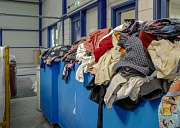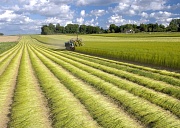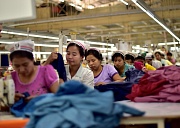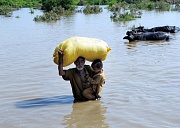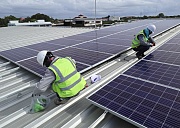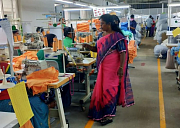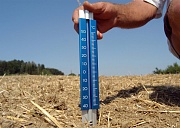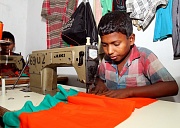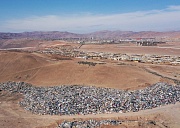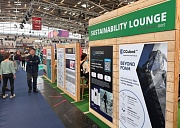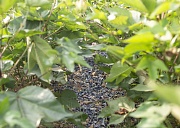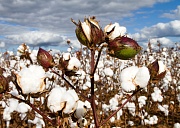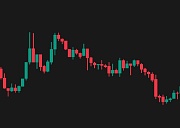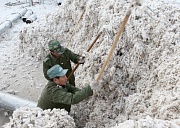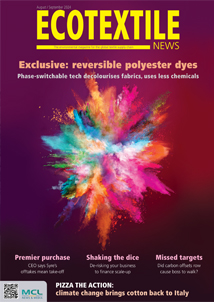One of the most keenly-anticipated sessions at the recent annual meeting of the Sustainable Apparel Coalition’s (SAC) in Singapore brought together different sides of the ongoing controversy over the use of data from the Higg Index suite of tools on consumer-facing product labels.
Representatives of Higg, the Norwegian Consumer Authority (NCA) and Norwegian brand Norrøna sought to exchange ideas on the best way for fashion companies to inform consumers of the environmental impacts of their products.
Back in June, the SAC suspended the use of Higg Materials Sustainability Index (MSI) data on product labels after the NCA concluded that Norrøna's claims were likely to be in breach of Norway's Marketing Control Act. The NCA also issued a warning to Swedish fashion giant H&M. In his written report on the Norrøna case, NCA head of section Tonje Drevland said: "As far as we understand, the real reason behind the substantial reduction in water consumption in global average numbers is because organic cotton farms typically are located in places with more rainfall compared to most conventional cotton farms."
Chief among their gripes was the use of lifecycle analysis (LCA) reports, containing global averages for environmental impact. This had led Norrøna to claim that an organic cotton t-shirt required the use of 87 per cent less water than one made of conventional cotton. NB: In the magazine version of this article, an annotation at this point on the page noted: “Technically, this was accurate but only because organic cotton tends to be grown in parts of the world, such as India, that require little or no irrigation.”
Subsequently, the SAC has also announced it is undertaking a third-party review of Higg MSI data and methodology but the controversy has continued to rumble on, with the NCA, together with the Dutch Authority for Consumer and Markets (ACM), issuing joint guidance on a way forward for the industry.
On the panel at Singapore sat the SAC’s vice president of the Higg Index, Jeremy Lardeau; the NCA’s head of section, Tonje Drevland; Norrøna’s chief sustainability officer Brad Boren; and Textile Exchange’s chief executive La Rhea Pepper.
Drevland’s message was that sustainability information directed at consumers needed to be clear and accurate.
“I want H&M, Inditex, all large players to take a step back and realise that the steps they are taking internally may feel hugely costly to them but remember to look at it from the other side, from the environmental perspective,” she said.
“Consumer information is great but be sure that you have the correct data and that you know that you're on the right path and be sure to put the data and the claims into context for the consumer. What does it mean?”
Lardeau welcomed the NCA’s input and accepted the need for better data, before alluding to ongoing efforts at the SAC to address these very problem areas.
“It's a very complicated space and I think we have to recognise that. I think the guidance is a step in the right direction,” he said, adding:
I think we recognise the need to have clear substantiated, not overblown claims of sustainability performance. I also agree that this guidance raises the urgency around the need for better data, better methodologies.
But he also called for consistency from policy makers, with consumer protection chiefs in Norway declaring the use of Higg MSI data for product labels illegal under EU legislation, while the French environmental ministry was using similar data to develop a similar service for consumers.
The NCA and the ACM insist their 11-page guidance on how the fashion industry should share sustainability information with consumers is based on their interpretation of EU law. However, it is not legally binding and the SAC is consulting with its lawyers on how best to respond.
Drevland told Ecotextile News: "We hope this guidance makes it easier for the textile industry to make clear and accurate environmental claims to consumers," saying that:
It is not all that difficult - make sure you have documentation for your claims, do not exaggerate and take a step back and consider how your marketing may be perceived by a consumer with little to no knowledge of the industry.
Both the NCA and the ACM have been active in seeking out greenwashing in the fashion industry. While the NCA investigated Norrøna's claims, the ACM's inquiries led H&M to temporarily withdraw its 'Conscious' and 'Conscious Choice' labels, and Decathlon to do the same with its 'Ecodesign' label.
Edwin van Houten, director of ACM’s consumer department, said: “We find it positive that the clothing industry is committed to making the environmental impact of its materials more transparent for consumers. This helps consumers make more sustainable choices."
But he added: "It is important that they do so properly so that consumers are not misled. With these guidelines, we explain how businesses can do just that."
Global averages
In the document, the watchdogs say it should be made clear if the numbers presented in sustainability claims are global averages. And, in those cases, it must be made very clear to the consumer that the numbers are not directly related to a specific product.
They also pointed out that Higg MSI data was based on a “cradle to gate” assessment of the environmental impacts of a material from raw materials to finished product – but did not measure impact across the entire life cycle of a product.
"This will not be self-explanatory to the average consumer," continues the guidance. "Therefore, the SAC also needs to make clear to consumers what the measuring of environmental impacts only 'cradle to gate' means."
The guidance also added that most consumers would not realise that Higg MSI data was only intended to compare different types of the same material – such as organic and conventional cotton.
"This should also be made clear to the consumer," it says. "Otherwise, consumers could be misled to believe that a comparison of environmental impact across different types of materials has been made."
And it added that all of this information should be presented in a clear and unambiguous way. It would not be sufficient to simply add lines and lines of extra text which could overload the consumer with information.
NCA director Trond Rønningen said that what had started out as an investigation of the marketing practices of one outdoor product manufacturer had resulted in important guidance for the entire industry.
"As long as you can substantiate your marketing claims and present your message in a way that is clear, concise and understandable for the average consumer, you should be in the clear," he said.
The SAC responded in a statement in which it said it was at one with the watchdogs on the need for environmental information shared with consumers by apparel and footwear brands to be credible, accurate and substantiated.
"Only by the industry working together with policy makers and regulators can the scale of the change that is needed be achieved," it said.
"To assist the industry in moving forward, we need harmonised regulations and clear, coordinated information on how information can be presented to consumers.
“Our ambition, following the next phase of collaboration with the NCA and the European Commission, is to provide guidance for our members, and the wider industry, to ensure all environmental claims are as robust as possible."
To subscribe to our market-leading news, analysis and other content on environmental issues in the fashion sector – including access to our popular mobile app and back issue archive – please follow this link HERE.











